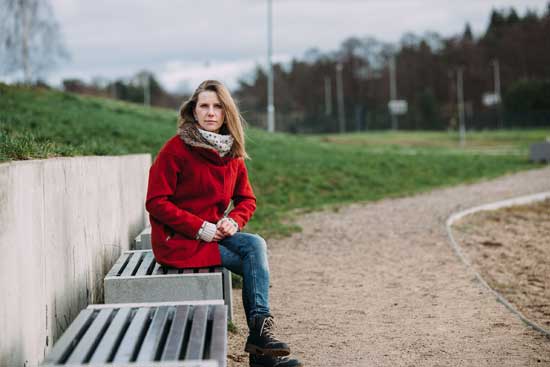Rima, PHA Lithuania

Rima, PHA Lithuania
My name is Rima (35 y.). I am from Lithuania. I am married with two wonderful kids. Daughter is 7, and son is 9 years old. I have been diagnosed genetic pulmonary arterial hypertension (GPAH). My sister also suffered from this disease. Unfortunately, she is no longer with us. On June 30, 2015, was the first time I heard the diagnosis of pulmonary arterial hypertension. The diagnosis was terrifying, and I thought my life was over. After I learned about my disease, I spent a lot of time searching for information about this diagnosis to understand what I could expect in the future. I was also very keen to learn about other people with the same diagnosis to see if people really can live with such diagnosis. What interested me most was those success stories that proved people with such diagnosis can live longer than two years. At that time, the most worrying finding was that without treatment, the average survival rate was only 2.8 years. These estimates seemed very upsetting. Finally, I learned from my doctors that there is an organisation that unites people with this disease. When I became a member of the Pulmonary Hypertension Association (lith. ŽSPHA, Žmonių sergančių plautine hipertenzija asociacija), I got acquainted with other patients. Socialising with other people of the same destiny helped me to learn more about this disease and get acquainted to a different everyday life. Through communication with other people I learned that life could go on, only in a slightly different way. Moreover, after sharing my concerns with other people I felt more understood because they had similar problems to those of mine. People with the same diagnosis not only share their common concerns and experience but also celebrate their small achievements, which inspire others to move forward.
I am currently on the waiting list for lung transplantation. The time is pressing as my heart is overloaded. The therapy consisting of 3 medications, which is the maximum, is not sufficient. I am taking oral medicines every day and constantly injecting treprostinil under the skin using a pump. I can only be thankful for the modern medicine which allows me to improve the quality of my life, and my children can grow having both parents. Breathing is easier, and seeing my children growing and spending time with my family is a true gift and I highly appreciate it.
Before I had children, I worked as a kindergarten teacher, however I never returned to the job. After the diagnosis, I turned into various activities trying to find myself and keep my head busy. I love photography. It fascinates me because at least there I can feel powerful to capture a moment and stop the time. However, at the moment, I get to hold camera in my hands much less often as this requires a lot of strength which I am currently lacking. Eventually, I discovered handcrafting activity that also pleased my heart but required much fewer physical efforts. I make beaded brooches, hair accessories for girls, bow ties for men, and sometimes crepe paper flowers. These activities are less physically demanding, and the very process of handcrafting helps to calm my thoughts. Self-realisation gives me the joy of life.
My daily routine is far from boring and is filled with lots of action and emotions. Both of my children are currently doing remote learning, and occasionally require my help with studying. I also want to take care of the housework and spare some time for my handicrafts. Recently, I took up one more activity that was completely unfamiliar to me until then – I became the head of the ŽSPHA organisation. I am the third head of the association in our country. There are plenty of daily challenges I need to deal with, and my head is spinning with host of different thoughts. There is a lack of awareness on this diagnosis in Lithuania. Therefore, I want more information about this disease to reach the public, general practitioners, and the patients themselves. When people are given this diagnosis, lots of questions come to their mind, and finding answers is not that easy. Patients need go a long way before they manage to share down this diagnosis.
I have always wanted to make my life meaningful by the activities that could contribute at least a small part to a better tomorrow. Thus, I was given a great opportunity to be useful to other people. If I help at least one person as the head of the association, I will be incredibly happy. I believe that a small cog can make a large clock work.


